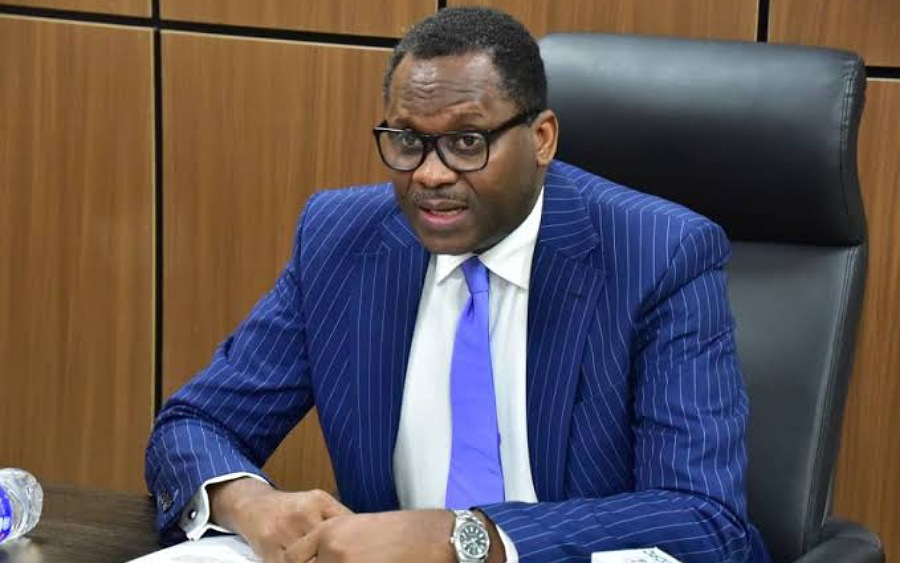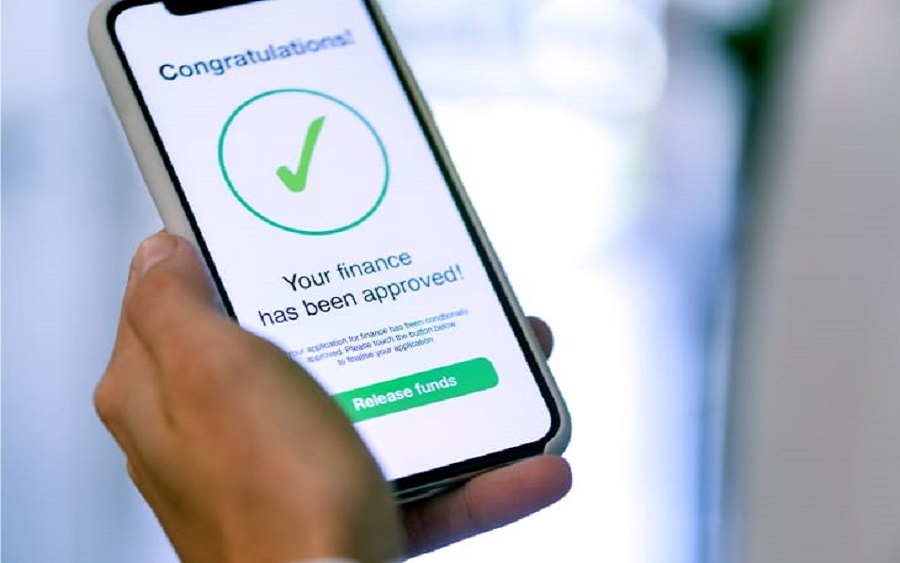Babatunde Irukera is the Executive Vice-Chairman Federal Competition Consumer and Protection Commission (FCCPC).
In this interview with Nairametrics, Irukera discloses what the agency is doing to address the rising cases of consumer abuse by companies, businesses and service providers.
He also explained what the FCCPC is doing to regulate the money lending space and to make sure that electricity consumers get meters instead of having to deal with the estimated billing system. Excerpts:
On the proposed increase of fares by airlines to deal with the increased costs of doing business, what is FCCPC doing to protect consumers?
One of the dilemmas airlines expressed is that as a regulator, the FCCPC does not have a problem with them increasing yet, as they are unable to stop the costs of jet fuel.
Every airline should price its services in accordance with its own revenue, model. There is going to be no mutual understanding of the increase in airfares. Any such discussion will be against the law.
With respect to aviation fuel, if airlines want to get together to address the supply issues from the same source at the same price, even though typically these are input costs that should be indecently and fiercely competed. We should understand that and relax the rules with competition in the supply chain.
FCCPC is also looking at members of MOMAN who sell jet fuel, to see if there is any profiteering or people taking advantage of the Russian-Ukraine war to unjustly increase what has been acceptable margins.
The agency began an investigation some time ago on shipping companies after the FCCPC visited some of the marine companies and discovered shady activities. What is the update on this?
Investigations of this nature sometimes will take years and can be very expensive, all over the world. Investigations about anti-competitive conduct are very intricate, very extensive. But there’s one thing that is helpful to know; it’s that just the courage to open a broad investigation in itself starts to address behaviours.
I give you an example. In barely six months now, we’ve come back from about 14,000 per container to about 10,500, because everybody knows the regulator is looking. We raided five out of many shipping companies. Those five, they’re very worried about what we will find from what we took. We took emails, data, all kinds of things, about 7.5 terabytes of information, hundreds of 1000s of emails. They’re very worried about what we will discover.
The ones that we haven’t been to are very worried about whether we are coming or not. So right in that space, if I’m modifying their behaviour, and once you’ve raided, nobody trusts each other again, they will not go to those secret meetings to discuss anymore, because they don’t know who has already entered into leniency and is cooperating with the authorities and coming to sit in the meeting, just to gather the information and implicate the orders. So you can see that when they were not able to get together when they became worried about getting together to decide, prices by itself just started coming down.
Because we couldn’t agree and say okay, tomorrow, let’s move to 16,000. Tomorrow, I’ll do mine in the morning, you do yours in the afternoon. You do yours at night. Once you couldn’t have that agreement anymore, you are not trying to outplay each other, which is how it should be. And that is what is bringing prices down already.
Consumers have experienced an exponential increase in the prices of products in recent times. What is FCCPC doing to ensure that consumers pay the appropriate prices for goods?
So we’re not a price regulator. Nigeria is a free market economy with only one limited provision in the FCCPC Act. It even allows the government to get involved in price. That is based on a lot of work, studies, research, a report and a recommendation to the president by the FCCPC for a limited time of controlling price in a specific sector, based on competition issues, not just increasing prices. Then, that decision when the president accepts the recommendation and adopts it, it will be gazetted. It will only be for a limited period of time. Other than that, we don’t regulate prices.
Now, there are provisions in the FCCPA that prohibit exploitative or reasonable, manifestly unjust contract terms, including price. Does that give us the authority to just say this thing is too high, this price is going too high? No, it doesn’t. What is not reasonable is not a subjective thing. It’s based on objective standards. What is unjust and manifestly so is based on objective standards not arbitrary. And it’s not just a number. That something cost N100,000 doesn’t make it unreasonable or unjust. And our regulatory approach must be methodical and must be transparent and clear.
Do you know how bottling companies started competing? They moved from 33cl to 50cl. They were competing on value. They are trying to get the business but they couldn’t move the price. On that one, we don’t need to worry about who’s increasing the price or not. We know that in the system, if you make the mistake of hiking your price, it will remain on the shelf. So that’s what we are doing to address pricing, fighting hard on competition. That’s why we raided shipping companies, tobacco companies. That’s why we have investigations open in multiple industries right now as we speak, that’s why we went after airlines. I don’t know if N50,000 is fair or not, and we’re not saying it is excessive.
The moment you guys come together to say N50,000, the price is not fair. Because the most important stakeholder, the consumer, you’ve taken him out of the meeting when you guys got together to say let’s do this thing together, you took competition.
We’re talking about investigative hearings, and some of the sharks, some that we raided, and even some that were not raided, have immediately come up. Let me tell you, even on Twitter, people shared details. And they’re coming in because once you restrict the ability to do business, they’ll come.
What is the update on the loan sharks raids?
They’re making commitments. It’s likely that there’ll be further regulatory actions. But we’re getting interim commitment now that they would stop contacting third parties, stop defamatory messages and stop intimidating borrowers.
And once we begin to see that bear fruit, we must be careful. We are not looking to close the money lending space. They fill a critical void, so in a society such as ours, access to soft or consumer loans that traditional financial institutions will not give is important. All we need or always say is that this business must be ethical.
The interest rate calculation and the loan repayment strategies must be transparent, fair and must not damage reputations. If they could come in and do business in that way, we welcome them for the critical service they’re providing, so that’s why we’re engaging in the manner that we are. The guidelines will be out soon.
The intelligence we are gathering from our investigation also shows us that there are certain things that need to be in the guidelines. For instance, in speaking with a foreign national, I have one of those companies. During the interrogation yesterday, we discovered that the company on ground is usually owned by a different company staffed by a different company and gets the working capital from a different company. And so just understanding all of that is important for the guidelines, to be able to identify everyone in the value chain for each business.
Just that visibility allows us to know who Nigerians are dealing with, so the information we’re receiving and gathering in the course of the investigation is also important to the guidelines we’ll develop, but they’re coming shortly. Who are we working with? Now the raid was conducted by a joint regulatory and Enforcement Task Force. We started a joint team when we met towards the end of last year. The agencies involved are the central bank, the EFCC ICPC, FCCPC, NITDA and the National Human Rights Commission. We are working with people.
On the abuse of human rights, how many cases are being prosecuted in court?
I don’t have them offhand, but in Uyo, I’m prosecuting five rice smugglers, then in Abuja we have Faxx, H-Medix and five other supermarkets, so that’s already 10 cases, we have other lawyers who are prosecuting different cases.
We’ve got quite a number of cases. Matter of fact, we have plea bargains waiting to be signed and accepted by the court in about three of our cases. I’m prosecuting a shipping line right now for obstruction of justice, and a large multinational for obstruction. We have quite a number of cases that we’re prosecuting. And these are criminal cases, civil cases, a totally different thing.
Nigeria imported bad fuel which damaged cars and caused scarcity of petrol across different states in the last few months. No proper explanation has been given for the scarcity. What has the FCCPC done concerning this?
Immediately it happened, we engaged the primary regulator, that is the Nigerian Midstream and Downstream Regulatory Authority, the NNPC, which is the government-owned business that imports and we addressed a few things. First, we realised that we don’t test for methanol, because we don’t even import petroleum products with methanol. There are parameters that we check. But there are parameters we don’t check because they’re not applicable and methanol is not applicable. But immediately what we did on our engagement with the NNPC and the regulator was, can we increase the testing parameters now that we’ve had this experience, and that is how the regulatory system works?
Even with your best effort when something goes wrong, you realise, you increase. It’s just like aeroplanes as safe as they are today, they still crash. They’re safer today than they were many years ago. When each crashes, there’s something we learn to make it safer. But it still doesn’t prevent it.
So now what we do as regulators is plug gaps as we go and strengthen the regulatory framework, that has happened now. The system has worked. They’re now checking far more parameters to ensure that this kind of thing doesn’t happen again. Now the question of holding those who imported this accountable, I believe that that is happening.
The NNPC — we’ve met with them, we’re still meeting — are pursuing remedies where applicable. We’re supporting that process in a way we can. But we’re not in the front seat of that, because we’re busy doing other things anyway.
But we continue to look out for our consumers who suffered injury or the equipment or vehicles were damaged, and we put out a portal to harvest those complaints so that we can escalate them. There’s a system that was put in place, and they go back to the filling stations, where they purchased.
If things are not resolved there, they escalate further up. Looks like this system has worked substantially because I just keep hearing about what are you doing? What are you doing, but I’m not getting that many complaints.
In the power sector, FG introduced metering as a way of improving the services or a way of closing gaps and reducing estimated billing but some Nigerians who paid for the meters are yet to get theirs after years. As a consumer rights organisation, what have you done to ensure customers get the meters?
The government has changed the metering policy a number of times. I believe this has happened because each of the methods adopted just hasn’t provided as many meters or closed the metering gap. I’m not sure that this is discrimination in the sense that treat some people this way and treat some people differently.
If there’s evidence, then we will go against the DISCOs but I agree with you that estimated billing, the way it is, is a travesty. Now, I don’t say that estimated billing on a whole is a problem. I don’t think that that’s the biggest challenge consumers have. Customers will understand if you tell them your meter will be ready in 10 months. In the meantime, this is your estimated bill. If it was reasonable, rational, and a true reflection of use, then customers pay. It is the fact that this estimated billing is far more arbitrary than it’s truly estimated.
If you’re going to estimate what I use when I don’t have light at all, how do I get a bill? It’s arbitrary people who have had a meter before. And on that meter, they were paying N300 per month, something goes wrong, the meter is ticking away to get put on an estimated bill. And then after getting a bill for N30,000, nothing has changed. How do I move from an empirical evidence base 300 to 30,000? It’s how arbitrary estimated billing is. We work with NERC to create a billing cap, and estimated billing cap for residential areas.
What do we need to do next?
What needs to happen is we need to move to enforce it. We have to make estimated billing unattractive. It is when it is unattractive that the Discos will rush to meet everybody. But to the extent that they can make more money from estimated billing than meter, what’s the incentive to meter everybody? And so it is enforcing the estimated billing cap? That will be, I believe, the game-changer, which we’re working with NERC to see how we can support that enforcement procedure more.























